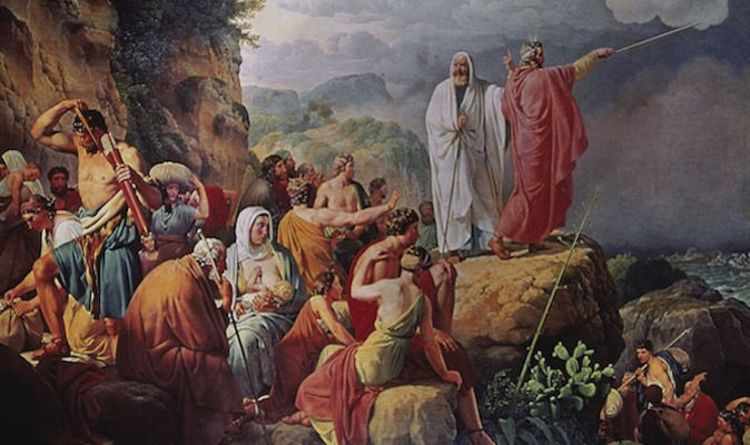If someone is a big fan of Star Wars, he or she may know the quote “May the force be with you!” It is repeated a number of times in the movies whenever the characters wish their companion a good luck as he or she faces challenges, especially in battles. If we replace “force” with “Lord,” we will see something very familiar with. In the beginning of every Mass, right after the cross sign, the celebrant says, “The Lord be with you.” Actually, Christians hear these words very often. These words are not simply repeated by chance but because they are significantly meaningful. Thus, in this homily, I would like to reflect on the book of Exodus to shed light on the significance of these words.
Briefly, Exodus narrates that God uses his powerful hands to save the Israelites from the slavery of Egypt and establishes the covenant with them. Readers can easily realize the presence of God in every event of Exodus from beginning to the end. In particular, by the providence of God the infant Moses was saved from the persecution of Pharaoh. God chooses him to lead Israelites out of Egypt. God fights Egyptians for Israelites. God gives them the covenant. God goes with them in the wilderness and grants them water and food. God takes care of them everything. The only thing He asks the Israelites is fidelity to Him.
In the narrative of the call of Moses at the burning bushes in the wilderness, when God wants to choose Moses to deliver Israelites from Egypt, Moses tries to refuse that mission for many reasons. Moses’ misgiving is reasonable because he had to escape from Egypt to Midian, but God wants to send him to Pharaoh. It seems like putting Moses to death. We also find similar challenges in the missions of the prophets. For example, God sends Nathan to rebuke David because of his adultery with Bathsheba and his murder of Uriah; or John Baptist was sent to criticize Herod for his relationship with his brother’s wife. Relating to Christians, all baptized receive the offices of priest, prophet, and king in baptism. Thus, they also have to face the contemporary challenges when acting in these offices. Like Moses, they may be discouraged.
However, God said to Moses, “I shall be with you” (Ex 3:12). This affirmation gets rid of all doubt and fear because “My grace is sufficient for you, for power is made perfect in weakness” (2Cr 12:9). It is important and necessary to be aware that human beings are weak and that “the Lord is our strength” (Ex 15:2). Therefore, insofar as God is with us, what should we fear? Thus, never fear, or doubt, or be discouraged because of anything; instead, trust in God and His providence.
Furthermore, although no matter how much we are sinful, God always wills to be with us, He lets us freely respond to His grace. The book of Exodus tells us the development of relationship between God and Moses. At first, Moses seems unwilling to do God’s mission. Later on, he enters an intimate relationship with God. “The LORD used to speak to Moses face to face, as a person speaks to a friend” (Ex 33:11). Therefore, we are not only aware of the presence of God in our lives, but we also actively open our hearts to receive the love of God and become intimate with Him. Practically, relational prayer is an essential means to come closer to God, especially in the Eucharist. In addition, because God is holy, living a holy life will deepen the relationship. Holiness in Christianity is equal to love.
Finally, be intimate with God and unceasingly deepen the communion with Him so that no enemy can harm us. Challenges, hardships, and sufferings are unavoidable in Christian life as well as life in general, but do not fear because “I shall be with you” says the LORD.

